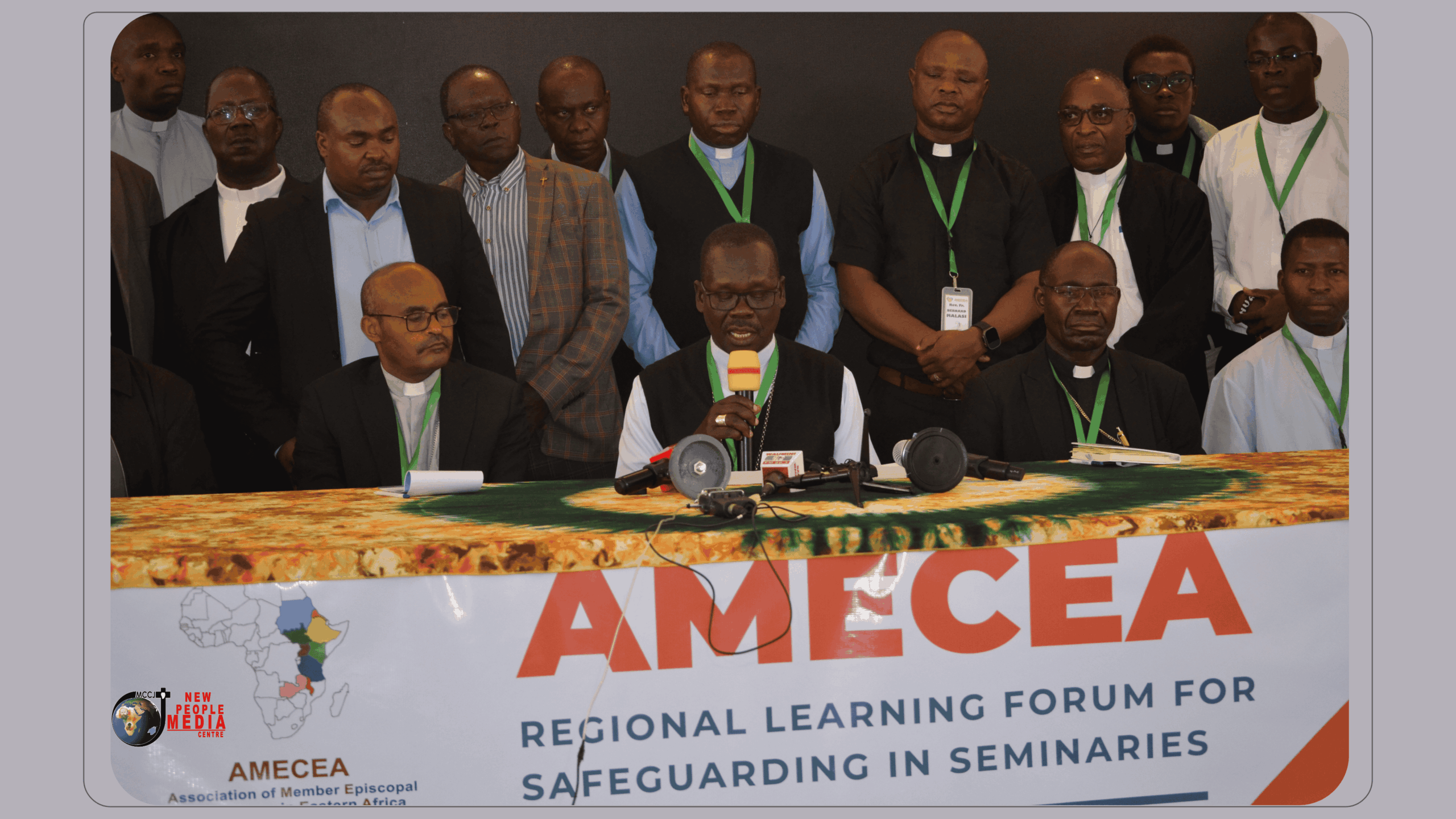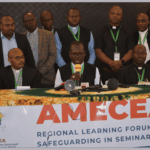Nairobi, Kenya – October 23, 2025
Catholic bishops, clergy, religious men and women, seminarians, and lay representatives from the Association of Member Episcopal Conferences in Eastern Africa (AMECEA) region have reaffirmed their dedication to making the Church a safe and nurturing environment for all.

Speaking to the press at the conclusion of the AMECEA International Safeguarding Conference, held at Donum Dei Retreat House in Karen, Nairobi, from October 20th – 25th, 2025, the bishops emphasized that safeguarding must be a shared responsibility rooted in the Gospel call to protect the vulnerable.
Held under the theme “To pulpit with Love and Care: Towards a Deeper Safeguarding Commitment through Seminary Formation,” the conference brought together delegates from across Eastern Africa to discuss practical ways of integrating safeguarding principles into seminaries and formation houses.
In their closing statement, the bishops acknowledged the existence of various forms of abuse; physical, emotional, and sexual, and expressed their firm commitment to Pope Francis’ call for zero tolerance toward all forms of abuse within the Church.
They highlighted the need to harmonize safeguarding policies and strengthen accountability structures across dioceses, urging all seminaries to establish safeguarding desks and include formal safeguarding training in their formation programs.
“Safeguarding must not be viewed as an administrative task for a few individuals,” the bishops said. “It is both a personal and collective responsibility to ensure that the Church remains a place of safety, healing, and hope.”
The bishops also called for a shift from policy to practice, stressing that safeguarding should become part of daily life within Church institutions and not merely a set of written guidelines. They further encouraged ongoing formation for clergy, formators, and pastoral workers to deepen their understanding and commitment to safeguarding.
During the press briefing, AMECEA officials clarified that while data on abuse cases is being compiled, the current focus is on prevention through formation and training. They also affirmed that the safeguarding approach extends to the formation of women religious.
In collaboration with the Pontifical Commission for the Protection of Minors, AMECEA is implementing the Memorial Initiative, which provides survivors of abuse with spaces for listening, healing, and psychosocial support.
In their press statement, the bishops emphasized the need for harmonized safeguarding policies, improved capacity-building for clergy, and a shift from policy to practice to ensure the protection of children and vulnerable persons.
They recommended that national conferences and dioceses align their safeguarding policies and enhance accountability structures. The bishops also urged seminaries to integrate safeguarding into all stages of priestly formation, noting that seminarians who are well-prepared in this area will play a crucial role in shaping the Church’s response to abuse and vulnerability.
Among other key recommendations, the bishops called for:
- The mainstreaming of safeguarding into seminary curricula, with well-trained formators to promote openness and dialogue.
- The institutionalization of a culture of safeguarding, including healing and support for seminarians’ physical, emotional, and spiritual well-being.
- The establishment of safeguarding desks in every seminary to coordinate and monitor safeguarding efforts.
- Continuous formation and accompaniment for young priests and pastoral agents to strengthen their lifelong commitment to protection and accountability.
The bishops stressed that safeguarding must go beyond written policies to become a daily practice and personal responsibility within the Church’s mission.
“By prioritizing the vulnerable, the Church can heal society and foster conversion, ensuring that children and the vulnerable are protected and valued,” the bishops affirmed.
The statement was issued on behalf of the AMECEA Delegates by Rt. Rev. Alex Lodiong Sakor Eyobo, reiterating the Church’s commitment to uphold the highest standards of safeguarding in all seminaries and to form priests who are compassionate, responsible, and committed to the dignity of every person.















